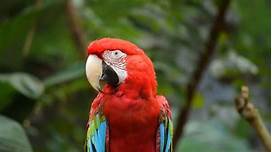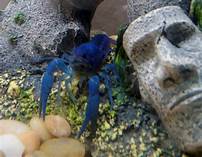How Long Do Parrots Live for as Pets?
Parrots are popular pets due to their intelligence, beauty, and ability to speak. However, before bringing a parrot into your home, understanding their lifespan is important. This article will discuss the average lifespan of parrots as pets, factors affecting their longevity, and how to provide the best care for your feathered friend.

Factors Affecting a Parrot's Lifespan
Several factors can affect a parrot's lifespan in captivity, including:
1. Species: Different parrot species have varying lifespans. For example, smaller parrot species like budgies typically live for 5-8 years, while larger parrots like macaws can live for up to 60 years.
2. Diet: A balanced diet is crucial for a parrot's overall health and longevity. Providing a variety of fresh fruits, vegetables, seeds, and pellets ensures your parrot receives the necessary nutrients.
3. Exercise: Regular exercise is essential for parrots' physical and mental well-being. A spacious cage or aviary allows your parrot to stretch its wings and engage in flight-like activities.
4. Social Interaction: Parrots are social creatures that thrive on interaction with their owners and other parrots. Providing ample socialization opportunities can help reduce stress and promote longevity.
5. Veterinary Care: Regular checkups with an avian veterinarian are vital for detecting and treating health problems early on. Routine examinations can also help identify age-related changes and ensure your parrot receives proper care.
How to Provide the Best Care for Your Parrot
Enriching your parrot's environment and meeting its physical and emotional needs are essential for promoting a long and healthy life. Here are some tips:
1. Provide a Suitable Cage: Choose a cage that is large enough for your parrot to move around comfortably and stretch its wings. Make sure the cage is sturdy and has adequate ventilation.
2. Offer a Variety of Toys: Providing a variety of toys, such as chew toys, foraging toys, and interactive toys, stimulates your parrot mental and physical activity.
3. Establish a Routine: Parrots thrive on routine. Establish regular feeding, sleeping, and playtime schedules to provide stability and comfort.
4. Train Your Parrot: Training your parrot can help strengthen your bond and encourage positive behaviors. Training sessions can also provide mental stimulation and enrichment.
5. Be Patient and Understanding: Parrots can go through hormonal changes and behavioral challenges as they age. Be patient and understanding during these times and seek professional help if necessary.
Remember, the lifespan of parrots in captivity can vary significantly depending on the species and the care they receive. Providing a loving and nurturing environment, meeting their dietary and exercise needs, and ensuring regular veterinary care can help your parrot live a long and happy life.
Declaration: All article resources on this website, unless otherwise specified or labeled, are collected from online resources. If the content on this website infringes on the legitimate rights and interests of the original author, you can contact this website to delete it.






